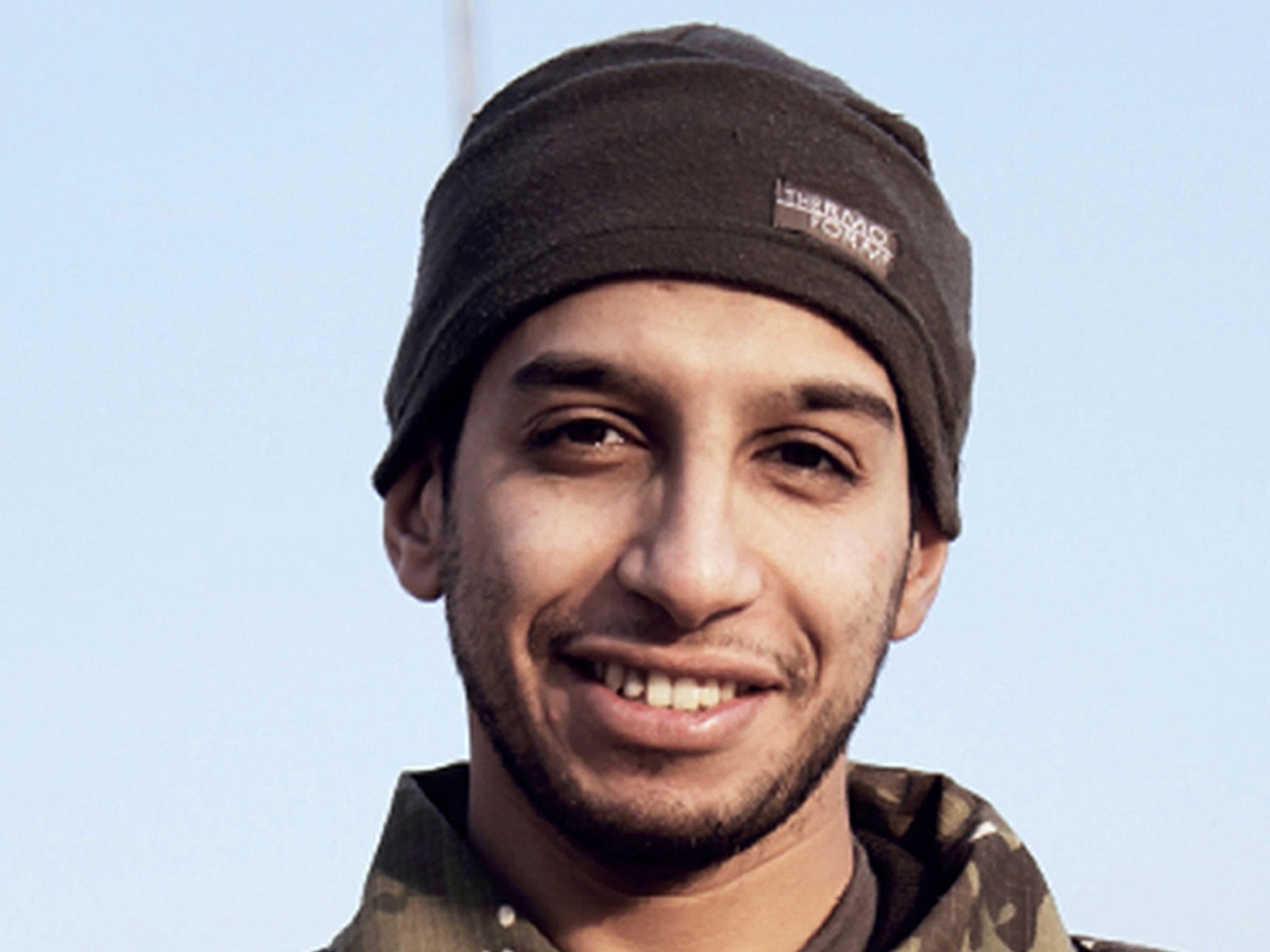Paris attacks: Woman who tipped off police and prevented second wave of atrocities says she feels 'abandoned' by authorities
'Sonia' left 'cut off from the rest of the world' after telling police hideout address of jihadist leader Abdelhamid Abaaoud

Your support helps us to tell the story
From reproductive rights to climate change to Big Tech, The Independent is on the ground when the story is developing. Whether it's investigating the financials of Elon Musk's pro-Trump PAC or producing our latest documentary, 'The A Word', which shines a light on the American women fighting for reproductive rights, we know how important it is to parse out the facts from the messaging.
At such a critical moment in US history, we need reporters on the ground. Your donation allows us to keep sending journalists to speak to both sides of the story.
The Independent is trusted by Americans across the entire political spectrum. And unlike many other quality news outlets, we choose not to lock Americans out of our reporting and analysis with paywalls. We believe quality journalism should be available to everyone, paid for by those who can afford it.
Your support makes all the difference.France avoided greater terrorist carnage in November thanks to the courage of a young woman who tipped off police that she had seen the jihadist leader Abdelhamid Abaaoud living rough on a motorway embankment, it has emerged.
Now living in hiding and in fear of her life, “Sonia” told her extraordinary story in an interview with French radio and TV. She said that Abaaoud had boasted to her that he was one of 90 Isis members – including Britons and Germans – who had reached the Paris area from Syria without any travel documents.
Two days after the terrorist attacks in Paris on 13 November, in which 130 people were killed, the Belgian-born Abaaoud told her he planned further assaults on a nursery school, an office block and a police station in La Defense business district west of Paris. Thanks to “Sonia”, the second wave of attacks never happened.
“I said to myself: ‘I have to stop them,’” she said.
She telephoned the 197 emergency tip-off line and gave police the address of the hideout in Saint-Denis, north of Paris, where her friend – Abaaoud’s cousin – had taken him. Abaaoud, the cousin and another jihadist died when police stormed the hide-out three days later.
Sonia – whose name was changed and face and voice disguised for the interview – complained that she felt abandoned by the French authorities. “I have no social life, no work, no friends, no family. I’ve been cut off from the rest of the world,” she said.
“We are doing everything we can for her,” said the Interior Minister, Bernard Cazeneuve. And the Paris prosecutor’s office announced that it was investigating the TV station BFMTV and the radio station RMC for placing Sonia’s “life in danger” by interviewing her.
In her interview, Sonia said she had been with her friend, Abaaoud’s cousin Hasna Ait Boulahcen, on the Sunday after the Friday attacks when they received a phone call from a Belgian mobile number. They were told to pick up someone in Aubervilliers, in the north-eastern suburbs of Paris. When they reached a motorway embankment, they were told by the caller to shout the code “1010”. Abaaoud emerged from the bushes. “He had a woolly hat on, orange trainers, a bomber jacket. I thought it was a homeless person. And he was smiling. He looked nothing like a terrorist,” Sonia said. She asked if he had been involved in the attacks two days before.
“The [café] terraces, that was me,” Abaaoud said. “You killed innocent people,” Sonia protested. “They weren’t innocent,” Abaaoud replied. “Look what’s happening in our country, in Syria.”
Sonia added: “He talked about the attacks just like he was talking about going shopping. He was happy.” Sonia’s lawyer, Patrick Baudouin, said the authorities had failed in their duty to help her.
“She doesn’t even have a new identity yet. Her details are easily accessible in her file,” he said. “The state has not taken all the adequate measures to help this woman who is in real psychological distress. We need to protect her and help her regain some kind of normal life.”
Join our commenting forum
Join thought-provoking conversations, follow other Independent readers and see their replies
0Comments